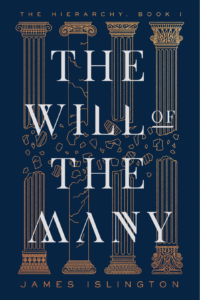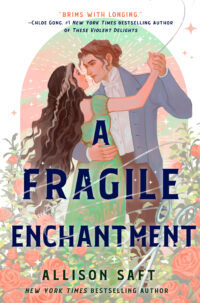To Summary or not to summary : the answers!
![]() You guys might remember, some time ago, when I asked :
You guys might remember, some time ago, when I asked :
When you review a book, do you write your own summary, or borrow the publisher’s one?
And when you read reviews on blogs, do you prefer to read the publisher’s one, or the blogger’s own summary?
You were numerous to answer, and I really appreciated all your feedback! It was great to read a variety of answers, and it really helped me make my decision. Since then, I have started writing my own reviews for some of the books I reviewed. This is a completely new exercise for me, one that is almost more difficult than writing the review itself, but I do enjoy the challenge.
Most of you who answered had a preference for summaries written by the blogger rather than the publisher’s ones, for many different reasons. I thought it would be a great idea to recap all of your comments and tips on the subject! At the same time, it might be a nice reminder and/or a useful list for those who, like me, would like to give a try to writing their own summaries, too.
So, in a giant recap, here’s what you had to say on “To Summary or not to Summary” :
Why Use the Publisher’s Summary? Using the publisher’s summary is the safest and quickest way to go! Writing your own summary can be kind of a puzzle, and for some it’s even the most difficult part of writing a review! If you’re in a hurry, or if you prefer to put all of your efforts in the review section of your post, than the publisher’s summary is a great way to tell your readers what the book is about. It’s also easily available, and you’re sure you won’t give away spoilers that weren’t presented with the book.
Why Write your Own Summary? Writing your own review gives a touch of originality to your posts, while also giving you an opportunity to add your personal touch. If you think a publisher’s summary was unfair to the book, or didn’t present it rightly, it’s your chance to correct the wrongs and present a truthful account of the story. Also, it might help you remember the book and its important points.
If you use someone else’s summary :
- Identify your Source : This point came back in many of your comments, and surprisingly it’s something I wasn’t doing before (surprisingly, I say, because in photography, I’ve learned really soon to give credit where credit is due!) Anyway, it is a very important point; Amazon’s summaries aren’t always what’s on the back of the book, and neither are Goodreads. If you borrow a summary, say so : after all, someone else worked on writing it. Your readers will appreciate to be able to do the part between what’s “yours” and what isn’t!
If you write your own summary :
- Be Objective : The summary isn’t the spot to give your opinion – unless you are both summarizing and reviewing at the same time, which some bloggers do. But most of the time, the summary and the review are two different parts. The summary should be as neutral as possible; this will also give more credibility to your review.
- Be Concise : Most comments suggested something between 3 and 6 sentences. After all, if people are interested, they’ll read the book! Also, after seeing the same book on many different blogs, the summaries can become a little repetitive; people are mostly interested in your opinion of the book, so don’t hesitate to babble your heart out in the review part!
- Keep it Distinct : To help your readers, keep the summary distinct from the review. I’m not saying to place a big neon sign over the summary, but changing paragraph between the two makes things clear for everyone.
- Use the One Third Rule : Some suggested what I thought was really clever : to avoid spoiling the book, base your summary on the first third of the book. What is in the first third is often considered as the book’s setup, so it’s usually okay to talk about it. But, keyword is : usually. Sometimes it’s not the case, so just be careful.
- Avoid Spoilers : Again, don’t spoil the book! You’ll ruin the fun for everyone! If you aren’t sure about what to include in your summary, ask yourself how important are the twists you want to talk about. Don’t talk about the ending; don’t even hint at the ending!
Final Word : Of course, those are only general rules and you can write amazing summaries without following those word for word. Except the “avoid spoilers” rule. If you should pick only one tip from this post, that should be it! All in all, do what you are comfortable to do! Your blog is your own personal island on the land, so you should feel free to decide by yourself whether you want to eat fish or coconuts. (hey, I never claimed to be great at metaphors and stuff!)
(Important note on original post : I mentioned in “To Summary or not to Summary” that the idea for this post came to me after “I heard one of the BBAW panelists mention that one of her criteria for judging a blog’s reviews originality was whether or not the reviewer wrote her/his own summary of the book.” This was in no way a blame toward this panelist! I know BBAW is still in the works, and I know how hard everyone worked on it! If anything, this discovery made me think about summaries, but in no case was I trying to judge this panelist’s criteria. That’s a whole other debate, and one I won’t touch even with a ten foot book! 😛 I hope I didn’t hurt anyone’s feelings, and I kind of regret now that I mentioned it in the first place.)










I do believe more of us need to be more concise or careful of what we put on our reviews. I like the shortest ones the best because they usually give me a general feel for the book and whether or not I would like it.
I really do have the hardest time writing those summaries (I didn’t originally do them myself either). Especially that last line. I try to hint at the main problem of the book in a good leading way, but sometimes they fall flat or sound corny. Eh, I’m working on it at least.
But conciseness is so hard! (said with a whine)
There is definitely a knack to writing the pesky things…I flounder every time, except when I take the easy way out. 🙂
The short reviews were easy to read, yes. But when I try to do a short one, I end up feeling as if I lacked something. Your short reviews Kay has flesh and I envy that!
As to the “avoid spoilers”, oops to me. I spill a few hints!
BTW, I don’t get the “first third of the book”. Can someone explain?
I’m so glad you posted tha question, Kay. Since I read it, I stopped using the publisher’s summaries on my reviews and write my own. 🙂 Now I feel as though the whole review is really *mine* to be proud of.
Cutlex – I think she means cover only the setting up phase of the book, and leave off with an exciting book rather than telling the whole ending. ^^
Staci : I know I like those two, although some bloggers can talk longly and be incredibly interesting! What I care the most though, is the spoilers. I’ve been burned a few times!
Melissa : I agree, the summary is probably the most difficult part to write. I guess if we work on it, we’ll get better!
Softdrink : Haha! I agree on that too! I guess we just like to talk and talk and talk (after all, that post was everything but concise!)
Cutlex : Thank you 🙂 I have the same feeling you have sometimes, don’t worry! And, yes, uninvoked explained the one-third thing really well! 🙂
Ceri : Oh, I’m glad that inspired you too! Since I started writing my reviews, like you, I feel like they’re *mine* completely!
Uninvoked : Thank for clarifying my thoughts! 😀
I think this post is freaking brilliant! It’s great to get a summary of how and why people do summaries in their reviews.